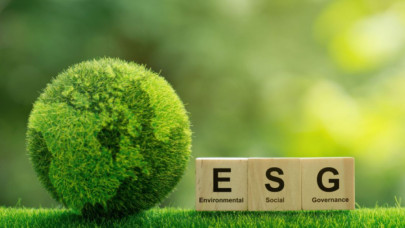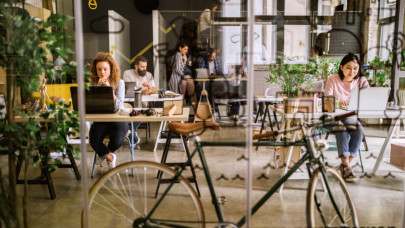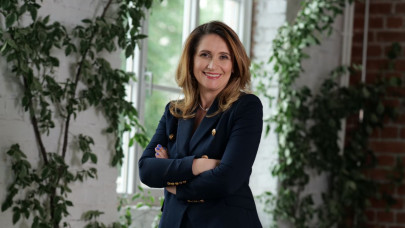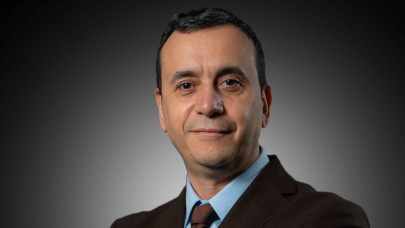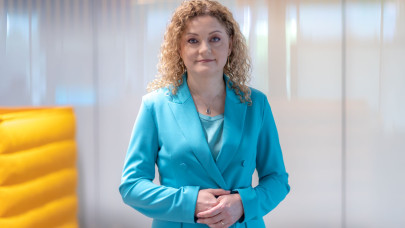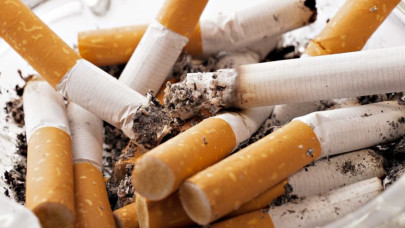What are the company's plans to be Carbon Neutral for its operations in Romania and net zero across its entire value chain?
JTI Romania follows the group's strategy to improve its environmental footprint. JT Group tobacco business is committed to being Carbon Neutral for its operations by 2030 and achieving Net-Zero Greenhouse Gas (GHG) emissions across the entire value chain by 2050. In support of this, by 2030, emissions from operations will be reduced by 47% and emissions associated with leaf and non-tobacco materials by 28%, against a 2019 base year.
JTI is among the first multinational companies established locally, having entered the market in 1993 under the name R.J. Reynolds. RJR became JTI in 1999, being now the largest Japanese company in Romania and having invested over €300 million so far. JTI meets its business objectives by paying close attention to measures to protect the environment and operates at high ethical standards, applicable to its employees, its business partners, and the community.
At present, approximately 75% of our Bucharest factory production is exported to more than 65 countries, with JTI Manufacturing being recognized as a center of excellence within the group. Among the standards observed in the JTI factory in Bucharest, are:
- ISO 50001 - demonstrates the company's commitment to constantly improving its energy performance, a standard recognized anywhere in the world as a benchmark for energy management.
- ISO 14001 - certification of environmental impact control and reduction, contained in the environmental policy that allows organizations to control the impact of their activities, products, and services on the environment.
JTI Manufacturing and the Bucharest JTI Trading office use 100% renewable electricity, thus significantly reducing their carbon footprint. The recycling rate at the JTI factory in Bucharest is 99%, managing to recycle almost all the packaging waste used.
To reduce the environmental impact, it was also purchased special equipment. For instance, the factory finalized 2021 a project to replace the filter pallets' stretch film with PET straps. The result leads to an annual reduction of 5.2 tons of plastic waste generated (stretch film).
The environmental footprint could not be reduced without 100% direct participation of the employees. Therefore, for them and with their help, in the plant and all JTI facilities, a series of programs are carried out:
- Selective bins;
- Special containers for collecting batteries;
- Annual campaigns and special containers in Bucharest for the collection of waste electrical and electronic equipment;
- Plastic tableware (glasses, plates, cutlery) replaced with recycled tableware since 2018;
- Water filters, to replace plastic bottles.
The company has invested in recent years in launching products that reduce the impact on health for consumers. Do you have the total value of these investments? What other such products are you currently working on?
JT Group plans to invest more than JPY 300 billion in Reduced-Risk products globally, mainly in the heated tobacco category, between 2023 and 2025 to support its ambitious geographic expansion.
Ploom X is the JT Group's newest and most evolved heated tobacco device. The product was launched in Japan in the summer of 2021. Romania was the tenth country in which JTI launched Ploom, after Japan, the United Kingdom, Italy, Portugal, Czech Republic, Lithuania, Switzerland, Poland, and Hungary. After Romania, Ploom X was launched in Greece, Kazakhstan, and Slovenia.
What measures has the company undertaken to minimize the impact on the environment along the value chain, with an emphasis on climate and nature?
In 2022, JT concluded global work listing the key non-tobacco material suppliers that contribute significantly to our carbon footprint. In 2023 we focused on suppliers' climate change programs together and supported them to build climate change management programs where necessary.
Locally, JTI pays close attention to the materials from the partners' outlets. Thus, the shelves taken out of use and that are changed are collected and recycled.
We also launched this year the first environment educational campaign, dedicated to adult consumers, with the message `Speak correctly, live clean`. The message was promoted for a month on radio and online, aiming to convince adult consumers to not throw cigarette butts in the street.
Regarding packaging, how much is reusable or recyclable? What goals do you have for this?
According to JT Group's tobacco business targets and KPIs, we will reduce the environmental impact of the products and packaging through design solutions, facilitating responsible collection and disposal, consumer awareness, and education. More specifically, we will reduce our packaging (including plastic) and ensure that the remaining is 85% reusable or recyclable by 2025, rising to 100% by 2030. We have carried out several initiatives looking at design solutions, responsible collection, and disposal. In 2022, JTI's efforts led to 82% reusable or recyclable packaging and 18% recycled content in packaging.
How much has the company invested in communities and how much have the employees volunteered on company time?
Globally, since 2015, JT Group invested US$450 million in our communities and employees volunteered 193,521 hours on company time.
Locally, for about 20 years, JTI Romania has been involved in the life of the community.
Some of the programs grouped in the "Social Inclusion" section are JTI Seniors, Social Ambulances, Life Projects, donations, assistance, and consistent sponsorships offered to community associations and foundations for humanitarian purposes.
Through the JTI Seniors Program, launched in April 1998, the company offers a daily hot meal and medicines for about 45 elderly persons. The seniors are selected by Sector 2 City Hall through the Directorate for Social Assistance and Protection, under a partnership agreement – initiated at the request of the local public authority, based on social assessments and rigorous monitoring. JTI Seniors also receive festive packages with food and gifts specific to the Easter and Christmas holidays, medical assistance, as well as household support through volunteers.
The Social Ambulances Program was initiated in 2005 by Sector 2 City Hall, as an alternative for emergency medical services. The program is aimed at the most disadvantaged and vulnerable persons (elderly persons who are alone, disabled seniors, and homeless people). The company covers the fuel costs for all six emergency medical units.
Projects for Life is a platform used for providing support to the programs recommended by JTI employees in the areas where they operate. So far, homes for the elderly, social centers for professional reintegration, palliative care, and workshops for vulnerable and disabled people, as well as isolated communities from Sălaj, Giurgiu, and Timiș counties have been supported. Sales agents from the 35 offices in the country recommended projects for vulnerable people, at risk, in the communities where they work, in Alba Iulia, Timișoara, Bihor, Neamț, Vaslui, Giurgiu. The projects belong to Motivation Romania, Masca Foundation, Atelier fără frontiere (Workshops Without Frontiers), SoSiSeSa, Dalcroze, Muriel Ball, Teatrelli, Speromax, Asociația Filantropică Berca (Berca Philanthropic Association), Eco-Assist Association, Smiles Foundation, the Focșani, Mărășești, and Războieni Centres for the Elderly, Asociația Pentru Tine (Association For You), Serena, SM Magic Seniors Giurgiu, etc.
The company is also since years a great supporter of culture, being a partner of the Sibiu International Theatre Festival, the Transylvania International Film Festival, “Fairytale Tours” concerts in small cities, SoNoRo Festival, CoolSound and `A Hand for the Poet` projects and official sponsor of Gigi Căciuleanu Romania Dance Company. JTI has been honored by the Japanese Ministry of Foreign Affairs for promoting Japanese culture in Romania. JTI supports the Japanese Garden, the Tea House within the National Museum of Art, and the Romanian-Japanese Studies Center of the Romanian-American University.
“JTI Encounters”, launched in 2000, has become a national cultural brand in contemporary dance.
Since 2000, the company has supported JTI Scholarships for Journalists, being also a partner of Internship 2.0.
How much has the company reduced greenhouse gas emissions from its operations and emissions from leafy and tobacco-free materials?
As per JT Group's tobacco business targets and KPIs, since 2019, we have reduced global Greenhouse Gas emissions from our operations by 16%, while emissions from our leaf and non-tobacco materials have reduced by 13%.
What is the company's policy regarding reducing water consumption and waste?
The global plan includes qualitative and quantitative targets, for example, to reduce water withdrawal in our operations by 33% by 2030 against a 2019 base year and to reduce waste by 20%, by 2030 (baseline year 2015).
Locally, Romanian Factory was one of the first in Bucharest to build a Water treatment station about three decades ago. In 2021 we installed in the Factory water purifiers to reduce waste generated by plastic bottles. In 2022, the program was also extended to the Bucharest offices.
What happens to the leftover materials, especially tobacco, that can no longer be used?
In Romania, leftover materials are in part reused (i.e. cartoon boxes C48), or recycled. At a very low level, under 1% are considered waste and sent to landfills, being like household trash. Leftover tobacco is transformed into compost.
What are the ESG objectives of the company and the investments that the company is preparing in 2024?
JTI's ESG objectives are set in the medium and long term. Between 2015 and 2030, JT Group had planned to invest $600 million to help make communities inclusive and resilient, with our employees contributing 300,000 volunteering hours.
Locally, we will continue our social responsibility programs, including those in partnership with authorities for fighting the illicit trade. The contraband means budget losses and an increase in criminality. JTI Romania contributed significantly to reducing the level of illicit trade by under 10%, through public campaigns (launched annually since 2010 in partnership with Customs, Border Police, and National Police), sniffer dogs programs (more than 60 canine teams trained to discover tobacco, cash, drugs, and weapons are actives in customs points with JTI support), equipment donations.
Sustainability means also to be a company valued by our 1,300 people, JTI being in 2023 for ten consecutive years certified as Top Employer.
JTI is also an important contributor to the state budget. In 2021 and 2022, JTI contributed around RON 5.5 billion (€1.1 billion) annually to the Romanian state, which translates as approximately 80% of its turnover.
We celebrated this year 30 years in Romania and we intend to continue in 2024 and the next decade to invest in our business, to be an important taxpayer and Top Employer, and to be involved in the life of the community where we work.


